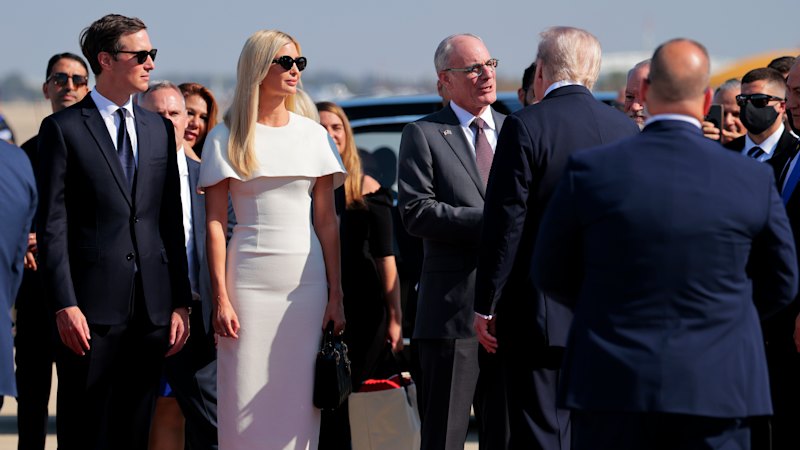
The diplomatic landscape surrounding Gaza has shifted dramatically as key figures, including Donald Trump, Tony Blair, and Jared Kushner, engage in high-stakes negotiations. On August 27, 2023, Blair and Kushner met with Trump in the West Wing to advocate for a ceasefire in Gaza, a move intended to reshape the ongoing conflict. Their initiative was aimed at persuading Trump to pivot from Israel’s military dominance to a more diplomatic approach that emphasizes peace.
The ceasefire, which later gained traction, was framed in grandiose terms, with Israeli politicians in the Knesset likening Trump to Cyrus the Great, the ancient Persian king known for liberating the Jews from Babylon. This characterization underscores a growing perception that Trump’s influence extends beyond traditional political boundaries, positioning him as a pivotal figure in international diplomacy, where personal relationships often overshadow institutional protocols.
Power Dynamics in a New Era
The emerging political order is characterized by a blend of personal connections and business acumen. Steve Witkoff, the U.S. envoy to the Middle East, has collaborated with Blair and Kushner, both of whom have backgrounds steeped in wealth and influence. This trio exemplifies a shifting paradigm in which politics resembles business, with financial interests and powerful connections taking precedence over established diplomatic norms. The traditional roles of entities like the United Nations are increasingly sidelined as leaders navigate this new landscape, where securing capital and influence is paramount.
The significance of Trump’s approach to the Gaza conflict is further highlighted by his actions on September 29, 2023. During a meeting with Israeli Prime Minister Benjamin Netanyahu, Trump demonstrated a discontent with Netanyahu’s pessimism regarding the ceasefire, urging him to adopt a more constructive outlook. This interaction, publicly shared by the White House, illustrates Trump’s propensity to engage directly with world leaders, prioritizing personal rapport over formal diplomatic channels.
Britain’s Role and the Influence of Personal Connections
In the wake of this shifting landscape, British Prime Minister Keir Starmer recognized the urgency of addressing the Gaza situation. He directed his national security adviser, Jonathan Powell, to focus on the crisis, drawing from Powell’s extensive experience in peace negotiations, particularly his role in the Good Friday Agreement of 1998. Powell’s connections to both Blair and Kushner have made him a trusted figure within the Trump administration, further blurring the lines between formal diplomacy and personal influence.
Powell’s ability to navigate this new world of “sofa diplomacy” has raised eyebrows among traditional diplomats, who are wary of the erosion of established processes. Critics argue that relying on personal relationships undermines the principles of international law and the role of elected governments. Yet, in this new political reality, figures like Powell are seen as essential to maintaining relevance in a landscape where influence is increasingly derived from personal connections rather than institutional authority.
As negotiations progressed, Powell worked alongside Witkoff to merge three competing peace plans: the Franco-Saudi proposal, a separate Arab initiative, and the Kushner-Blair framework. This collaborative effort exemplifies how the modern diplomatic landscape operates, with personal relationships facilitating the consolidation of diverse agendas into a cohesive strategy.
The implications of these developments extend beyond mere political maneuvering. With Trump taking center stage at the UN General Assembly in September, he utilized the platform to rally support from Arab and Turkish leaders for his peace initiative, reflecting a shift away from traditional multilateral engagement.
The Gulf states emerged as crucial players in this evolving narrative, particularly Qatar, which has long served as a mediator in regional conflicts. The significance of personal relationships is underscored by Trump’s affinity for the Gulf monarchies, with his dealings often prioritizing personal connections over established diplomatic ties.
The intricate web of relationships and financial interests that now defines international diplomacy raises questions about the future of the rules-based order. As power dynamics shift, the influence of personal connections and financial interests becomes increasingly evident. The response to the Gaza conflict is not merely a reaction to humanitarian needs but also a reflection of the financial stakes involved.
Blair’s ambitions to play a significant role in the peace process further illustrate this new paradigm. His efforts to establish a “Board of Peace” for Gaza, while ambitious, are met with skepticism from some quarters, particularly given his controversial legacy in the region. Yet, Blair’s extensive network and experience position him uniquely to navigate the complexities of this new diplomatic reality.
Overall, the ongoing developments in the Gaza peace negotiations reveal a landscape where personal connections, financial interests, and individual influence dominate. The evolving role of figures like Trump, Blair, and Kushner signals a departure from traditional diplomatic practices, prompting reflection on the future of international relations in a world increasingly shaped by the “deal makers.”






